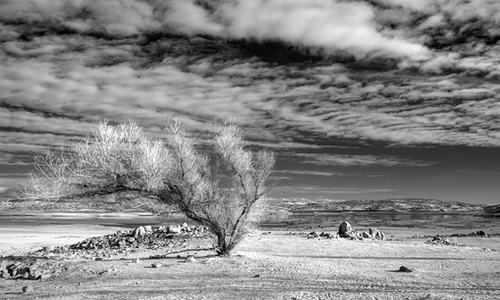

My 2013 list of top environmental stories included the horrific July 2013 oil train explosion in the Quebec town of Lac Megantic that killed 47 people. But it wasn’t until this year that reporters, environmental groups and community organizations caught up to the fact that shipping oil by rail is 1) a growing practice that 2) poses a real threat to public safety and 3) is frightfully under-regulated. The sudden burst of attention was due, in large part, to spate of oil-by-rail accidents in late 2013 and 2014. In November 2013 a train carrying 2.7 million gallons of crude oil from the Bakken fields exploded near Aliceville, Alabama. A month later, a train collision in Casselton, North Dakota spilled 400,000 gallons of petroleum. And then on April 30, 2014, an oil train derailed and caught fire in Lynchburg, Virginia, forcing the evacuation of 300 people. People began waking up to the fact that, as Adam Federman wrote in our Summer issue, “Each day million of gallons of highly combustible oil are moving through major metropolitan areas.”
National newspapers like The New York Times have jumped on the issue, as have environmental groups like Forest Ethics and Earthjustice, which just this month filed a lawsuit to ban the DOT-111 cars that most oil is shipped in. According to a story in Mother Jones, the DOT-111 is like “the Ford Pinto of rail cars.” Federal regulators are belatedly taking action. In July, the US Department of Transportation proposed new rules to govern shipping crude by rail; even Republicans applauded the move. But the issue is far from settled. With the U.S. shale oil boom continuing and pipelines stretched to capacity, oil-by-rail will continue to be a hot topic in 2015.
5. Election #Fail
In Case You Missed It, there was a big election this year. Going into November, environmentalists were cautiously optimistic that big spending by Tom Steyer’s NextGen Climate Action PAC and the League of Conservation Voters could help make climate change a wedge issue in several key contests. And so tens millions of dollars were spent in Florida, Maine, Michigan, Colorado, New Hampshire and Iowa to elect climate champions and/or defeat climate deniers. Unfortunately, things didn’t quite go according to plan. Environmentalists came up with a 2-4 record in the major races in which they picked a fight and spent heavily. Senator James Inhofe of Oklahoma, will now chair the Senate Environment and Public Works Committee. Ouch.
But all is not lost. The massive investments made to organize Millennial voters, especially, may pay off in the long run—or as early as 2016. The spending in 2014 might soften the ground for electoral contests to come. On the eve of the election, NextGen released a voter survey showing that younger voters overwhelmingly acknowledge that climate change is real, are dismissive of climate science deniers, and want to see federal action to stem greenhouse gas emissions. As veteran Democratic pollster Stan Greenberg said in a conference call explaining the poll results: “This issue matters for Millennials. It is defining issue, and leaders that deny or decline to act will pay a serious price for this politically.”
There were a few bright spots. Foremost among them, the vote by residents of Denton, Texas to ban fracking within the city limits. That’s right—Texas, the birthplace of hydraulic fracturing. According to environmental advocates, the vote in Denton shows that once people get to see fracking close and personal, they don’t much like it, and want to see the practice stopped. The oil and gas industry has filed a lawsuit to overturn the citizens’ vote; Big Green groups are rallying to Denton’s defense. Keep an eye on this one in 2015.
Though not election related, in another surprise win for environmentalists, on Dec. 17 New York Governor Andrew Cuomo announced a statewide ban on fracking following a two-year review that raised “red flags” about its risks to public health. The move is being seen as a major setback for the oil and gas industry.
6. Cargill Promises to Stop Contributing to Deforestation
Probably the most concrete progress to come out of the September UN Climate Summit was the New York Declaration on Forests, a pledge by multinational companies such as Asia Pulp and Paper and Unilever to cut worldwide deforestation in half by 2020 and to eliminate it completely by 2030. One of the signatories was Cargill, the privately held agri-business giant. As CEO Dave MacLennan said at the UN: “We understand that this sort of commitment cannot be limited to just select commodities or supply chains. That’s why Cargill will take practical measures to protect forests across our agricultural supply chains around the world.”
In a word, this is HUGE. From the pantanal of Brazil—where forests are razed for soy plantations and cattle ranches—to the ancient peat forests of Borneo—where trees are cut down to make plant massive palm monocrops—agriculture is the biggest driver of deforestation worldwide. We are humans are, quite literally, eating up wild nature.
Of course, it’s one thing to make a pledge; it’s another thing to keep it. Environmental groups and other public interest watchdogs will have to stay on top of national governments and mega-corporations to ensure they keep their promises. Here’s hoping they do.

 233k
233k  41k
41k  Subscribe
Subscribe 
